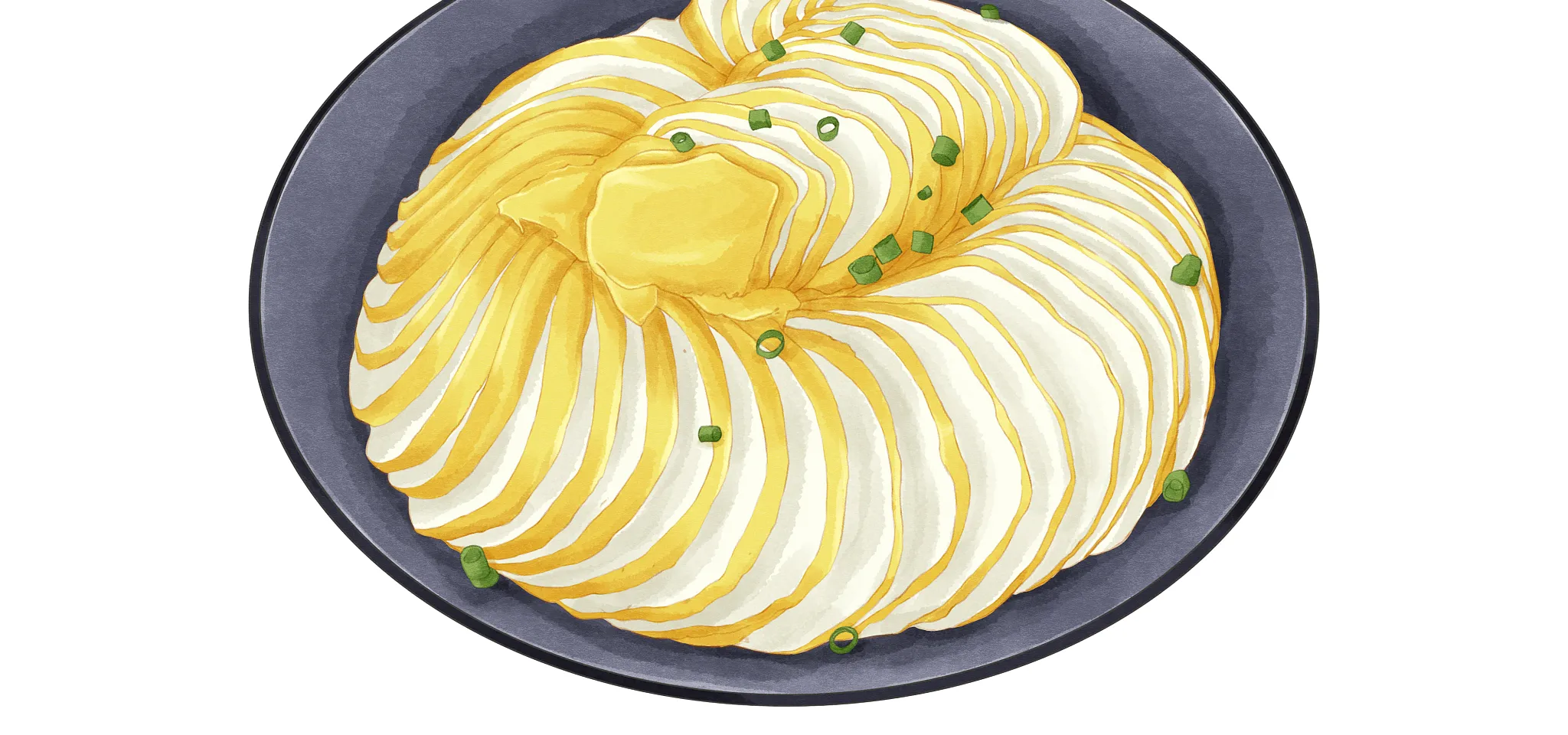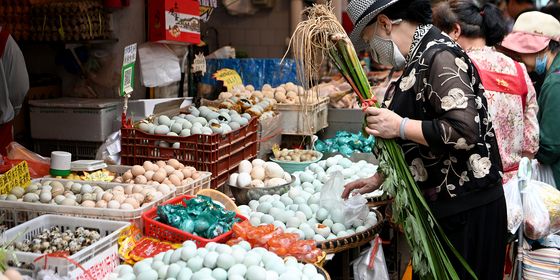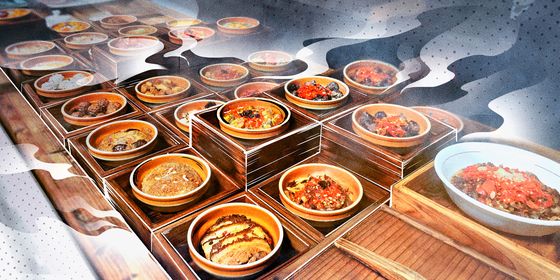Once exclusively imperial, the dragon dish is suitable for any descendant
According to a well-known saying in Zhongxiang city, Hubei province, “It can be never called a banquet without a dragon.” But those seeking a mythical beast on the menu need not worry about procuring some hard-to-source dragon’s eggs. The phrase refers to a famous imperial platter—the “coiled dragon” dish (蟠龙菜)—that alludes, in more ways than one, to one of China’s most famous emblems.
The legendary snake-like creature with four legs has been regarded since the 1970s as a national totem—you’ll find it today in everything from book titles to news headlines to “Descendants of the Dragon,” a famous anthem written by Hou Dejian from Taiwan, which eulogizes Han people as the natural progeny of this powerfully fearsome beast. Prior to this, though, the dragon had been the exclusive symbolic preserve of China’s rulers. All of which means, if a dish is named after a dragon, it had better not be ordinary.
Zhongxiang lays claims to the origin of a dish whose most striking feature is what the locals call “eating meat without seeing it.” This Daoist-sounding axiom makes the recipe sound suitably mysterious, but the secret is actually very simple: To prepare, pork and fish need to be finely chopped and mixed together into a paste, then wrapped in an egg omelet. Thus, when it is served, you can only see the omelet, with the meaty goodness hidden inside.
The name partly comes from its appearance—most modern iterations present the meal in the shape of a flying dragon—but the more important reason is that its origin is related to the fate of an emperor.
The dish has a history of around 500 years, dating back to the Ming dynasty. According to the Veritable Records of the Ming, the largest historical source of the period, in 1519, the Wuzong Emperor (明武宗) put a ban on the consumption of pork. Because his surnamed was Zhu, a homophone of “pig,” and his zodiac sign was also the pig, eating pork could obviously be construed as a subversive act. But this was hardly enough to deter pork lovers. In order to preserve the tasty custom, folks in Zhongxiang found this loophole.
A local folk tale provides a more outlandish version of the meal’s making. This story says that Wuzong died without a male heir, forcing the imperial family to select one from among his brothers and cousins. Finally, three candidates made the shortlist, including Prince Zhu Houcong, who lived in Zhongxiang (then called Anlu prefecture). The empress dowager announced that whichever candidate arrived at the capital first would ascend to the throne. This was bad news for the prince—since Zhongxiang was so far away from Beijing, he was unlikely to make it in time.
A subordinate, Yan Song, had an idea. Instead of traveling through China with his official train, having to deal with obsequious local officials hindering his progress, Yan suggested the prince disguise himself as a prisoner and be whisked to the capital in a paddy wagon. A fine plan, with only one problem—as a royal, the prince couldn’t accept a prison diet, so he summoned all the cooks in the city and demanded they invent a way to “eat meat without seeing it.” To sweeten the deal, he added that all of them would be killed if they couldn’t. One of the cooks, Zhan, was newly married. As her husband was sweating over a solution, Zhan’s wife arrived with some boiled yams to keep him going. Inspired by the thin skin on these sweet potatoes, Zhan them, chopped some fresh fish and pork, used the skins to wrap the mixture, and steamed it. The prince headed to the capital in a prison wagon with a supply of “meat potatoes” on hand, and finally won the throne.
Years later, so the story goes, Chef Zhan was summoned to the palace to cook his dish again. This time, he improved the recipe by replacing the potato skin with a thin omelet. After steaming the preparation, Zhan cut it into thin slices and arranged it like a “flying golden dragon.” The now-Emperor Zhu was impressed, so gave the meal an official name—the dragon dish, due to its relationship with the emperor himself.
Five centuries later, even the most humble office worker has access to food worthy of an emperor, and the dragon dish is especially popular in Hubei. The method of preparation has been included in the province’s intangible cultural heritage list. But it’s not too difficult to prepare a version for yourself at home—and don’t worry, no one will kill you this time if you get it wrong.
Ingredients:
- 250g pork
- 450g boneless fish
- 150g eggs
- 100g egg whites
- 100g broad bean starch
- 15g lard
- 5g salt
- 5g chopped ginger
- 5g chopped spring onions
Steps:
- Chop the pork finely, and soak it in cold water for half an hour.
- Drain the minced pork, then add the egg white, salt, starch, spring onion, ginger, and water, mixing fully into meat paste.
- Chop the fish finely, add salt and starch, and stir well.
- Mix the pork paste and the fish together.
- Whisk the eggs. Pour some vegetable oil into a pan, and fry eggs into a thin omelet.
- Roll the meat mixture into the omelet, and cut it into thin slices around three centimeters wide.
- Grease a plate with the lard, place the prepared slices onto it (don’t forget to make it into a dragon shape). Steam for 15 minutes.
- Drizzle dish with some chicken broth if you like, or just serve as is.
In the Belly, the Beast is a story from our issue, “Beyond Go.” To read the entire issue, become a subscriber and receive the full magazine.












